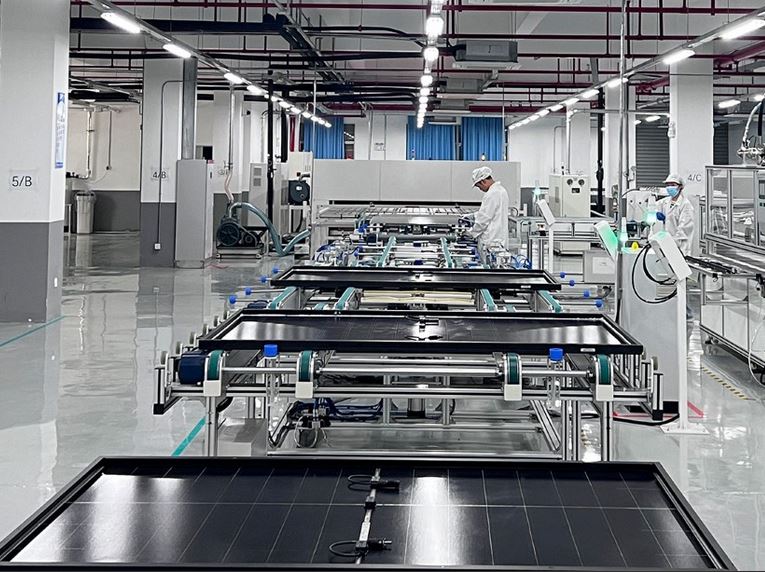Chinese module manufacturer Cando-solar Photoelectric Technology has developed a heterojunction solar module based on busbarless technology and a 210 mm wafer.
“Our new panel is intended for use in rooftop PV projects and provides customers with lower unit costs and higher power generating capacity,” a company spokesperson told pv magazine. “Compared to the heterojunction modules produced by European producers, our module can be manufactured a 10% lower production costs, due to the lower usage of silver.”
The module is available in five versions with a power output ranging from 405 W to 425 W and a power conversion efficiency spanning from 21.1% to 22.1%. The open-circuit voltage is between 29.7 V and 30.2 V and the short-circuit current is between 17.02 A and 17.39 A.
The panel has a size of 1,754 mm x 1,096 mm x 30 mm and a weight of 23.6 kg. It is built with 2 mm tempered anti-reflective glass and a 30 mm aluminum alloy frame. It also features an IP68 enclosure and the maximum system voltage is 1,500 V. Its operational temperature ranges from -40 C to 85 C.
The panel's temperature coefficient is -0.24% per degree Celsius and the manufacturer offers a 12-year product guarantee and a 30-year power output guarantee. The panels are said to be able to operate at 87.4% of their original performance at the end of the guarantee period.
It said the new product has been certified by Germany's TÜV Rheinland.
“This is the first time that the reliability certification of busbar-less heterojunction products based on the large size 210 mm of silicon wafer has been achieved,” the spokesperson said.
Cando-solar is based in Changzhou, Jiangsu province. It is currently scaling up the capacity of its manufacturing facility from 100 MW to 1 GW.
“We recently raised funds to implement this expansion plan,” the spokesperson said. “We are also looking forward to cooperate with partners worldwide.”
This content is protected by copyright and may not be reused. If you want to cooperate with us and would like to reuse some of our content, please contact: editors@pv-magazine.com.




By submitting this form you agree to pv magazine using your data for the purposes of publishing your comment.
Your personal data will only be disclosed or otherwise transmitted to third parties for the purposes of spam filtering or if this is necessary for technical maintenance of the website. Any other transfer to third parties will not take place unless this is justified on the basis of applicable data protection regulations or if pv magazine is legally obliged to do so.
You may revoke this consent at any time with effect for the future, in which case your personal data will be deleted immediately. Otherwise, your data will be deleted if pv magazine has processed your request or the purpose of data storage is fulfilled.
Further information on data privacy can be found in our Data Protection Policy.